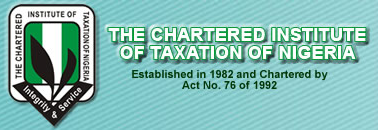
CITN president tasks tax professionals on digital competence
The newly inaugurated 17th President of the Chartered Institute of Taxation of Nigeria (CITN), Innocent Ohagwa, has described lack of digital literacy and technical competence among many tax professionals as a major barrier to innovation.
Ohagwa, who was decorated with his insignia of office, stated this during his investiture in Lagos, emphasising the need for retraining and continuous learning in an effort to reduce the human capital gap.
“A major barrier to innovation is the lack of digital literacy and technical competence among many tax professionals, especially those trained under traditional, manual tax systems.
SPONSOR AD
“These legacy-trained practitioners may struggle with new tools such as: Data analytics platforms, Robotic Process Automation (RPA), Cloud-based tax compliance systems.
“Without a robust strategy for retraining and continuous learning, the human capital gap will widen and slow down innovation uptake,” he said.
He further stressed that some organisations face internal structural challenges that hinder the adoption of innovative tax technologies.
He highlighted the barriers, which include rigid hierarchies, outdated governance models, insufficient cross-departmental collaboration, and limited capacity for digital integration.
He added: “Without institutional alignment and leadership commitment, innovation efforts may struggle to gain traction or scale effectively,” he said.
He stressed the need to build a tax workforce equipped to meet the demands of a rapidly changing global landscape.
“Equip tax professionals with strong technical skills, including mastery of tax laws, international regulations, IFRS, and industry-specific tax treatments. This foundation enables them to offer accurate, compliant, and high-value services in a complex global environment,” he said.
He advised tax professionals to cultivate a mindset of continuous learning, critical thinking, and flexibility, saying that the dynamic nature of tax policy, technology, and business models requires professionals who are proactive, resilient, and responsive to change.
“Encourage deep engagement with tax research, regulatory updates, and global policy reforms. Professionals must stay informed about BEPS actions, digital service taxes, sustainability-linked tax incentives, and compliance frameworks such as CRS and FATCA,” he said.

